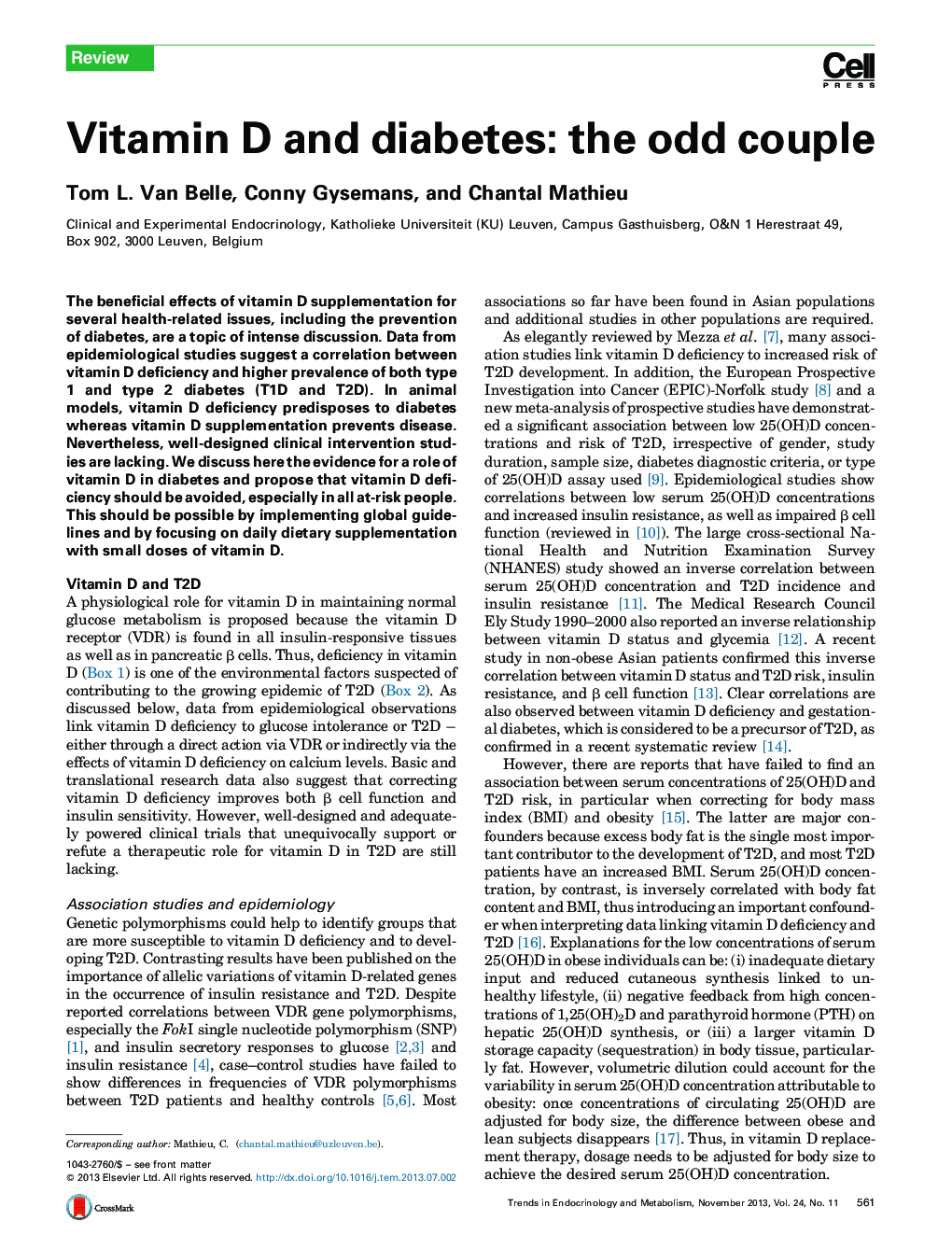| Article ID | Journal | Published Year | Pages | File Type |
|---|---|---|---|---|
| 2810542 | Trends in Endocrinology & Metabolism | 2013 | 8 Pages |
•Vitamin D affects immune and β cell function as well as insulin sensitivity.•Vitamin D deficiency is associated with higher risk for type 1 and type 2 diabetes.•Needed: clinical trials to evaluate a pharmacological role for vitamin D in diabetes.
The beneficial effects of vitamin D supplementation for several health-related issues, including the prevention of diabetes, are a topic of intense discussion. Data from epidemiological studies suggest a correlation between vitamin D deficiency and higher prevalence of both type 1 and type 2 diabetes (T1D and T2D). In animal models, vitamin D deficiency predisposes to diabetes whereas vitamin D supplementation prevents disease. Nevertheless, well-designed clinical intervention studies are lacking. We discuss here the evidence for a role of vitamin D in diabetes and propose that vitamin D deficiency should be avoided, especially in all at-risk people. This should be possible by implementing global guidelines and by focusing on daily dietary supplementation with small doses of vitamin D.
